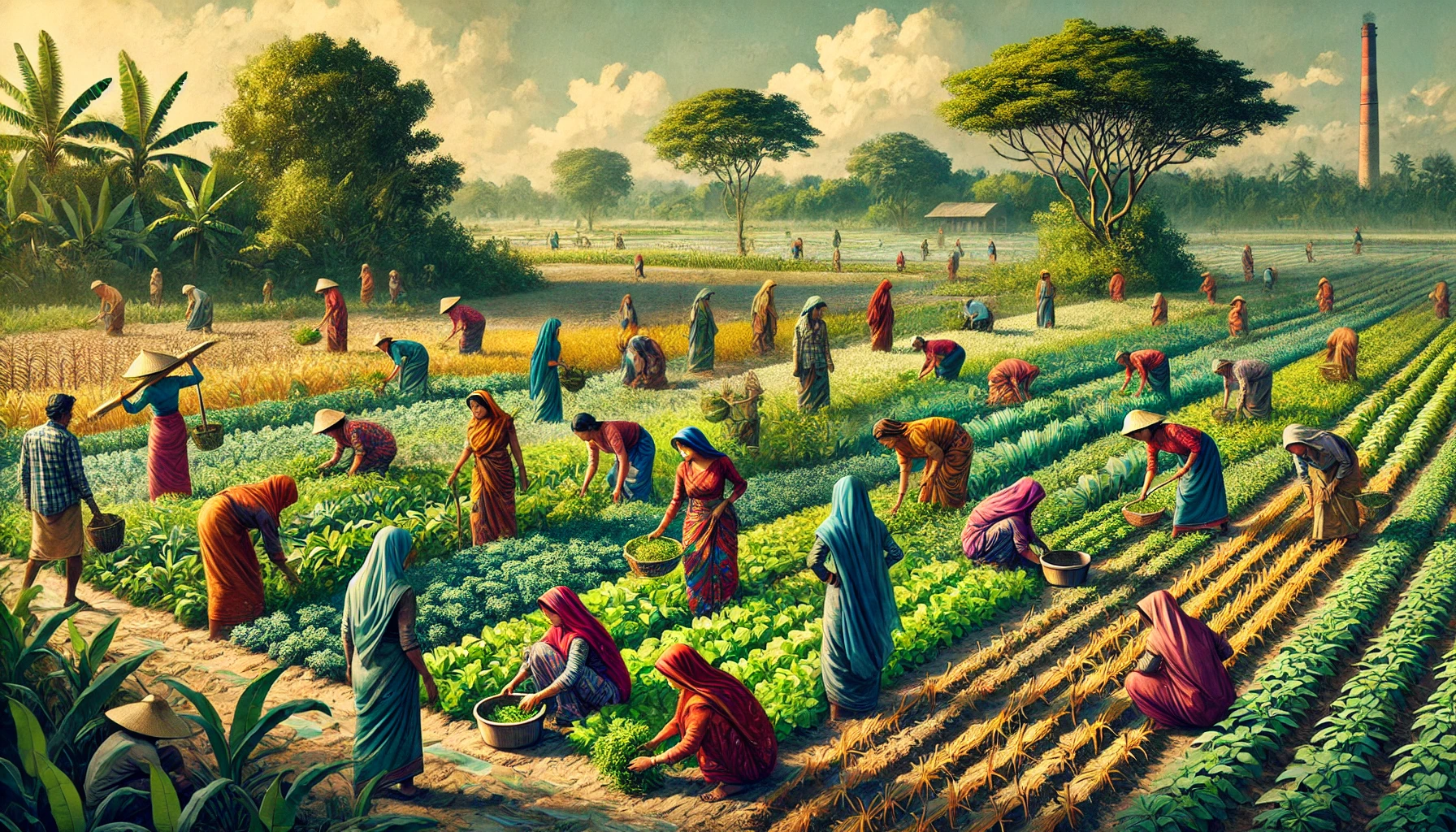Climate Change Impacts on South Asian Women Farmers: Health, Livelihoods, and Policy Solutions
The Asian Development Bank Institute highlights the severe impact of climate change on South Asian women farmers, exacerbating health risks, occupational hazards, and mental health issues. Gender-responsive policies are crucial for building resilient agricultural systems and achieving sustainable development in the region.

The impacts of climate change on women farmers in South Asia are profound and multifaceted, as detailed in a policy brief by the Asian Development Bank Institute. Women, who constitute a significant portion of the agricultural labor force, face heightened vulnerability due to traditional gender roles, limited access to resources, and minimal decision-making power. Climate change exacerbates their challenges, increasing their exposure to communicable and non-communicable diseases, occupational hazards, and mental health issues.
Rising Health Risks: Communicable and Non-Communicable Diseases
Communicable diseases such as malaria, dengue, chikungunya, and Japanese encephalitis are rising due to increasing temperatures and shifting weather patterns. Women farmers, who often work near standing water and have limited access to healthcare, are at higher risk of these diseases. Additionally, water-related diseases like diarrhea and typhoid fever, stemming from contaminated water sources, further threaten their health and productivity. These health impacts are compounded by their caregiving responsibilities, increasing the burden on their time and workloads. Non-communicable diseases (NCDs) pose emerging threats as climate change disrupts agricultural systems, leading to food insecurity and malnutrition. Women farmers in low-income settings struggle to access diverse and nutritious foods, increasing their risk of micronutrient deficiencies and related diseases. The maternal mortality rate in South Asia is notably high, with climate-induced disasters disrupting access to essential healthcare services, particularly maternal healthcare, leading to pregnancy complications and increased mortality.
The Toll of Occupational Hazards
Occupational health challenges are significant, as climate change leads to unpredictable weather patterns, including prolonged droughts, intense heatwaves, heavy rainfall, and floods. Women farmers face increased workloads and exposure to hazardous conditions, leading to musculoskeletal injuries and other health issues. The use of pesticides to combat increased pest activity due to changing climates further exposes women to harmful chemicals, exacerbating health risks.
Mental Health and Social Isolation: A Hidden Crisis
Mental health and psychosocial well-being are also affected, with climate change-induced uncertainty in agricultural production leading to heightened anxiety and stress. Erratic weather patterns and extreme events disrupt farming schedules, leaving women uncertain about their livelihoods. Displacement and social isolation during climate-related disasters further contribute to mental health issues, while additional caregiving responsibilities limit their opportunities for social interaction and support. Increased risk of gender-based violence in the aftermath of disasters exacerbates these challenges, highlighting the intersection of climate change and social vulnerabilities.
Essential Interventions for Resilient Agricultural Systems
To address these issues, the policy brief recommends gender-responsive disaster preparedness, improved access to healthcare services, enhanced occupational health and safety measures, promotion of nutrition security, and support for mental health and psychosocial well-being. These measures aim to build resilient agricultural systems and achieve sustainable development in South Asia, with a focus on prioritizing the health and well-being of women farmers.
Empowering Women in Agriculture for Sustainable Development
Women play a crucial role in South Asia’s agricultural sector, contributing significantly despite numerous challenges. The intersection of climate change, gender, and health disproportionately impacts women’s well-being. Communicable and non-communicable diseases, occupational hazards, and mental health issues are exacerbated by climate change, affecting women’s health, productivity, and livelihoods. Policies to address these issues should incorporate gender-sensitive approaches in climate adaptation strategies, encompassing disaster preparedness, healthcare access, occupational safety, nutrition security, and mental health support. Women’s involvement in farming activities in South Asian countries is driven by several socioeconomic dynamics. Younger men in South Asian countries are increasingly looking for opportunities in cities or abroad for better employment prospects as a result of agrarian distress. This creates a void in rural agricultural communities, contributing to the feminization of agriculture. Consequently, women, who traditionally played supportive roles in farming, are stepping into new, more active roles in agricultural production to sustain their livelihoods while taking on increased household responsibilities. Evidence suggests that if women were granted equal access to productive resources as men, they could potentially enhance farm yields by 20%–30%, resulting in a 2.5%–4% rise in total agricultural output in developing nations and consequently reducing global hunger levels by 12%–17%.
Climate change poses various challenges to women farmers in South Asia, significantly impacting their health and well-being. Rising temperatures, erratic rainfall patterns, and extreme weather events like cyclones, floods, and droughts are becoming more frequent and intense, affecting crop yields and agricultural productivity. Women are more likely to work in agriculture at higher temperatures and drier- or wetter-than-normal rainfall, especially less-educated and married women due to the out-migration of men. Consequently, women may be more affected by these climate-related challenges since they are frequently in charge of chores, including agricultural production, livestock management, and water collecting, along with household caregiving. Ensuring safe working environments and prioritizing the well-being of female farmers are essential prerequisites for maintaining agricultural production and attaining several of the Sustainable Development Goals (SDGs)—especially SDG 2: Zero Hunger, SDG 3: Good Health and Well-being, SDG 5: Gender Equality, and SDG 8: Decent Work and Economic Growth.
In light of these challenges, it is crucial to implement targeted interventions to enhance adaptive capacity, access to healthcare services, and nutritional support for women farmers. By prioritizing their health and well-being, planners and policymakers can foster resilient agricultural systems and promote sustainable development in the region.
- FIRST PUBLISHED IN:
- Devdiscourse










